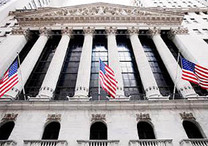
MUMBAI: Foreign fund inflows into domestic equities may take a hit if the U.S. Federal Reserve goes on to hike interest rates in the coming months, says a report. According to report by global banking and financial services major Deutsche Bank, while India may start to loose its attractiveness for foreign investors post the Fed lift-off, domestic investors are likely to offset the phenomena by continuing to invest in Indian capital markets.

"While India's relative attractiveness may start to abate post the Fed lift-off - impacting FII (foreign institutional investors) flow environment - we expect domestic investors to continue to be net buyers of Indian equities, providing an offset to any abatement in FII flows," the report said. "The multi-year transition of household savings from physical assets to financial assets is firmly underway, which should be supportive for continuing inflows into equity mutual funds, in our view," it added.
Besides, the report noted that over the past year and a half, India's equity markets have displayed a reasonably strong negative correlation with global commodity prices.
"India by virtue of being a net commodity imported benefits meaningfully from falling global commodity prices, while several emerging market peers (such as Russia, Brazil, South Africa) have to face stress due to lower commodity prices," the bank said. It also observed that the Indian rupee has remained "remarkably resilient" over the last year and a half, as lower commodity prices have helped reduce India's current account deficit, while continuing capital inflows have led to strong foreign exchange reserve accretion.
This has provided a strong safety net to any Fed lift-off induced capital outflows from emerging markets, it added. As per the report, MSCI Emerging Markets index has dropped by 13 per cent while correspondingly MSCI India has risen by 2 per cent, over the past three months. This has resulted in MSCI India's premium to MSCI EM widening to 65 per cent, the highest in past 12 years. The report has attributed this widening premium to increasing expectations of a Fed lift-off in September and a strengthening U.S. dollar, a sharp decline in commodity prices and impressive resilience of Indian rupee.
Besides, the report noted that over the past year and a half, India's equity markets have displayed a reasonably strong negative correlation with global commodity prices.
"India by virtue of being a net commodity imported benefits meaningfully from falling global commodity prices, while several emerging market peers (such as Russia, Brazil, South Africa) have to face stress due to lower commodity prices," the bank said. It also observed that the Indian rupee has remained "remarkably resilient" over the last year and a half, as lower commodity prices have helped reduce India's current account deficit, while continuing capital inflows have led to strong foreign exchange reserve accretion.
This has provided a strong safety net to any Fed lift-off induced capital outflows from emerging markets, it added. As per the report, MSCI Emerging Markets index has dropped by 13 per cent while correspondingly MSCI India has risen by 2 per cent, over the past three months. This has resulted in MSCI India's premium to MSCI EM widening to 65 per cent, the highest in past 12 years. The report has attributed this widening premium to increasing expectations of a Fed lift-off in September and a strengthening U.S. dollar, a sharp decline in commodity prices and impressive resilience of Indian rupee.

 RSS Feed
RSS Feed
